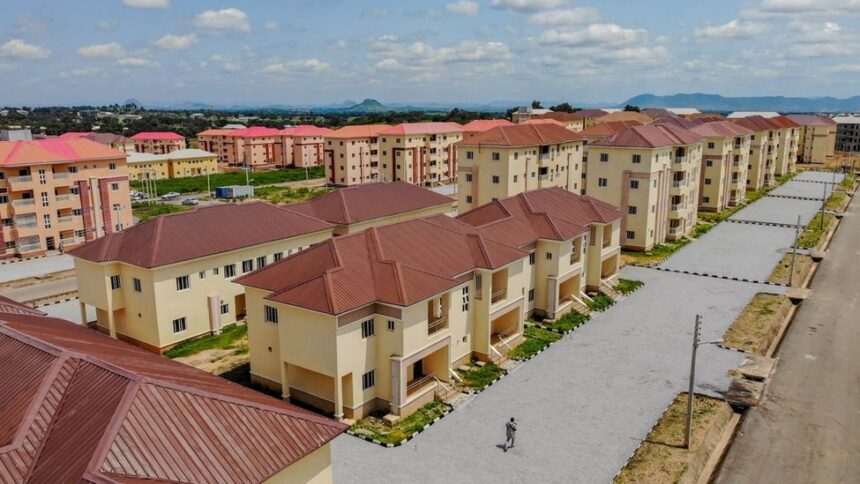Becoming a landlord in Abuja has become one of the most attractive investment opportunities in Nigeria’s real estate sector.
Abuja, as the Federal Capital Territory, is home to government institutions, multinational companies, and a growing middle class. This makes property ownership highly lucrative, with increasing demand for rental housing.
However, while the potential is promising, owning a house in Abuja also comes with challenges. This guide explores the pros and cons of becoming a landlord in Abuja, helping you make an informed decision before investing.
Why People Want to Become a Landlord in Abuja
The real estate market in Abuja is unique. As the capital city, it enjoys a consistent inflow of professionals, expatriates, and students, all in need of accommodation. Many investors aspire to become a landlord in Abuja because of:
- The city’s status as Nigeria’s administrative and diplomatic hub.
- Higher rental yields compared to other Nigerian cities.
- Strong appreciation of land and housing values over time.
The Pros of Becoming a Landlord in Abuja
1. Strong Rental Demand
Abuja’s status as the nation’s capital ensures a constant influx of professionals, expatriates, and government workers. Becoming a landlord in Abuja means you’ll rarely struggle to find tenants.
2. Property Value Appreciation
Real estate in Abuja appreciates steadily, especially in prime districts like Maitama, Asokoro, and Wuse. As a landlord, your property is both an income source and a growing asset.
3. Stable Rental Income
Tenants in Abuja typically pay one or two years’ rent upfront. This ensures predictable cash flow for landlords.
4. Prestige and Social Status
Owning a house in Abuja signifies financial success. Many see becoming a landlord as a mark of prestige, boosting both credibility and influence.
5. Diversified Investment Portfolio
Real estate offers stability during inflation or currency fluctuations. As a landlord, you diversify away from volatile markets like forex or stocks.
6. Potential for Short-Term Rentals
Abuja attracts diplomats, business travellers, and tourists. A landlord in Abuja can explore Airbnb or serviced apartments for higher returns.
7. Intergenerational Wealth Creation
Property in Abuja can be passed down to children, ensuring lasting financial security. Becoming a landlord in Abuja is often seen as a way to build generational wealth.
The Cons of Becoming a Landlord in Abuja
1. High Cost of Entry
Buying property in Abuja requires millions of naira. Prime areas are often out of reach for new investors who want to be a landlord.
2. Complex Legal and Regulatory Environment
The FCDA (Federal Capital Development Authority) governs land use, making ownership processes lengthy. Without proper documentation, a landlord risks disputes or loss.
3. Unreliable Tenants
Late payments, property damage, and refusal to vacate are common issues. A landlord must be prepared for the risk of difficult tenants.
4. High Maintenance Costs
From repairs to utility bills, maintaining a property can be costly. Neglecting upkeep reduces rental value, hurting a landlord’s long-term returns.
5. Vacancy Risks
While demand is strong, oversupply in certain districts can lead to vacant properties. A landlord may experience income gaps during slow rental seasons.
6. Security Concerns
Tenants expect safe and secure housing. A landlord may need to invest in security features like gates, guards, and CCTV, increasing costs.
7. Economic and Policy Risks
Inflation, government policies, or changes in housing regulations can affect rental income. A landlord is not immune to wider economic challenges.
Tips for Becoming a Successful Landlord in Abuja
- Choose the Right Location – Areas like Wuse, Jabi, and Apo cater to middle-income earners, while Maitama and Asokoro attract premium tenants.
- Understand the Law – Familiarise yourself with Abuja’s property regulations and tenancy laws.
- Hire a Property Manager – If you cannot manage daily issues, engage professionals to handle tenant relations and maintenance.
- Screen Tenants Properly – A thorough vetting process reduces the risk of late payments and property damage.
- Plan for Long-Term Gains – Abuja real estate is best seen as a long-term investment strategy.
FAQs About Becoming a Landlord in Abuja
What does it take to become a landlord in Abuja?
Becoming a landlord in Abuja requires purchasing property, understanding local property laws, screening tenants carefully, and maintaining the house. Proper planning and sufficient capital are essential for success.
Is being a landlord in Abuja profitable?
Yes. Abuja has strong rental demand and consistent property value appreciation. A landlord can earn steady rental income while benefiting from long-term capital growth.
Which areas in Abuja are best for landlords?
High-demand areas include Maitama, Asokoro, Wuse, Gwarinpa, and Jabi. These locations attract reliable tenants and offer higher rental yields for a landlord.
What are the challenges of being a landlord in Abuja?
Challenges include high property costs, tenant management, legal paperwork, maintenance, and occasional market fluctuations. A landlord must plan carefully to mitigate these risks.
How can I increase rental income as a landlord in Abuja?
To maximise returns, choose high-demand areas, maintain the property, offer short- or long-term rental options, and ensure tenants pay on time. A professional property manager can also help increase rental efficiency.





